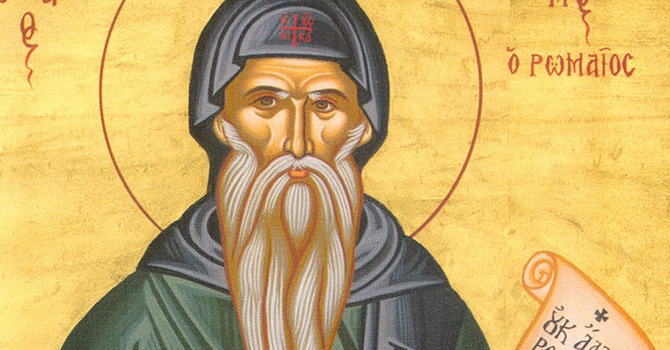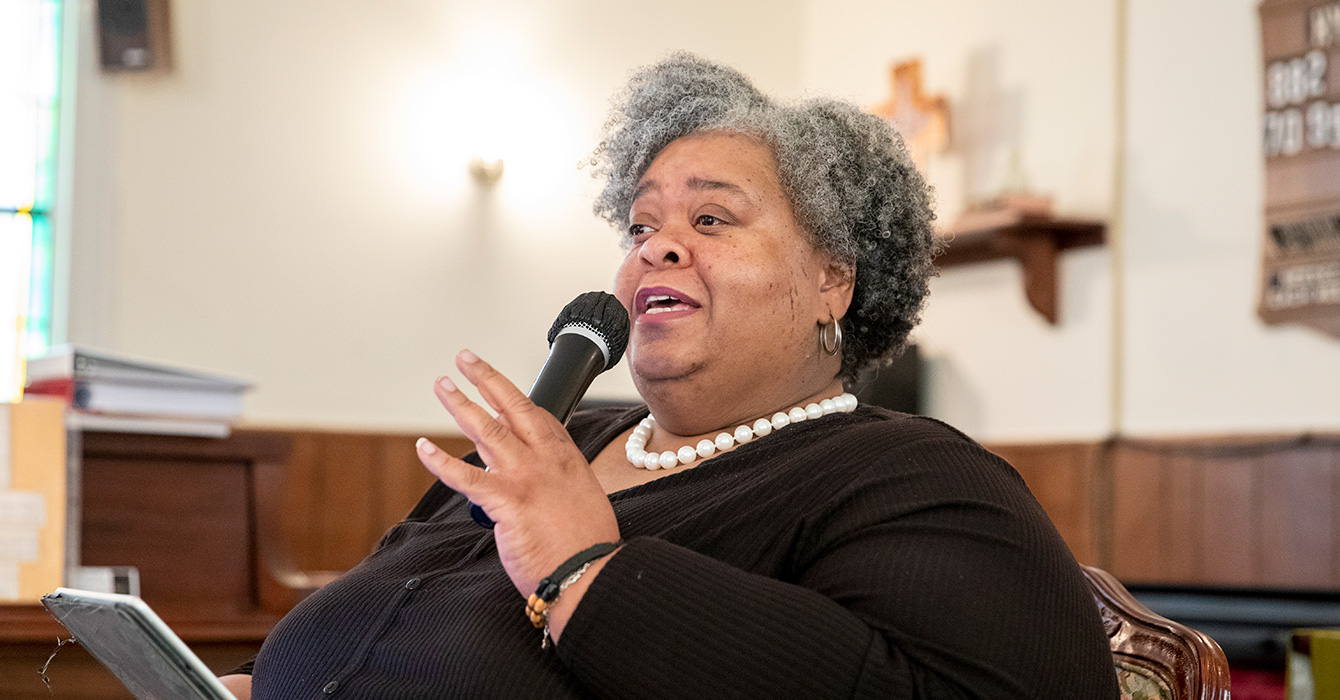I urged my students to use their imaginations as I handed out pages of John Cassian’s conversations with the monks of Egypt.
“It’s an experiment,” I said. “You’ve never read the desert fathers this way.”
I was asking these doctor of ministry students to use the fifth-century text to shed light on our topic: practicing communal discernment. They were skeptical.
Many of these students were pastors of congregations locked in conflict, anxious about decline and struggling to navigate the whitewater of change.
Many had engaged in the familiar contemporary approaches to solving these problems: crafting vision statements, articulating stretch goals and drafting strategic plans.
As useful as those are, though, I think what’s more critical is whether communities can discern, whether we can notice and respond to how God is present among us and in our world.
For that, I suspected the ancients might have wisdom for churches today.
If we read the monks with our imaginations, I thought, then even the sometimes strange things they had to say about discernment (a monk mistakes an angel of Satan for an angel of light, who convinces him to cast himself down a well -- a case study in discernment gone awry) might be instructive for communities today buffeted by constant change.
So I passed out the pages, set my timer for 30 minutes and instructed the students to read with this possibility in mind. They then discussed the reading in groups of three and reported their insights to the whole class.
“We’re not monks,” one student said during the discussion, “and this stuff seems very distant from my congregation. But I can already see some relevance: Abba Moses says that discernment holds all the virtues together -- it’s the most important. There’s always so much going on in my church -- but what holds it together?
“This makes me wonder whether practicing discernment can become the guiding center of our activity.”
I nodded in agreement. That’s imaginative reading, I thought, which is itself a key pastoral practice. This student allowed the odd and distant -- this ancient, monkish discourse -- to bump against the near and familiar -- the life of her congregation -- and it gave her a new take on her present situation.
The rest of the conversation continued to confirm my suspicion: there is wisdom in this ancient source for us. Here are some of the insights my students gleaned from an imaginative reading of the text:
Discernment is a gift from God that needs to be learned. Abba Moses tells Cassian that the virtue of discernment is not one that “can be seized … merely by human effort; it is ours only as a gift from God,” yet then goes on to say that a monk must “do his utmost to acquire it.” This is a paradox.
A congregation is wise to hold this paradox. Declining organizations often exhaust themselves with problem solving -- what leadership expert Ronald A. Heifetz calls “technical solutions.” These kinds of fixes, my students would say, are exactly what many congregations want, even though they generally do not address the complex problems at hand.
What a relief it must be, then, to discover that what congregations need most is God’s invitation to dismount the hamster wheel of fruitless problem fixing and to receive the gift God has already provided: the capacity to discern, given at Pentecost, still present today.
Yet the gift must be learned and honed, never taken for granted. This is where the role of the leader comes in -- not in doing the discerning for a community but in creating the spaces where a community can learn discernment.
Abba Moses talks about “deliberative processes of discernment” -- which the class interpreted as ways of being together, listening to God and making decisions that can be practiced and improved.
Discernment helps us see and name what spirit is moving us. “Discernment of spirits” -- that’s the biblical phrase for the practice. Cassian’s work is full of cautionary tales of monks who mistook evil spirits for angels of light and suffered for it. The evil spirits, like the spirits of pride or lust, fooled the monks. Discernment is the art of telling the difference.
Communities in decline need that kind of discernment. Even if you no longer believe in literal demons, you can be moved by spirits nonetheless, and we need to be able to identify them.
Is the building campaign, strategic plan or outreach effort being driven by a spirit of fear, pride or envy? Is the spirit of nostalgia leading us to believe we can avoid risk and innovation by recovering a distant past?
Congregations need to be able to discern what spirit is moving them so they can be free to follow the Holy Spirit.
Naming the spirits that move us requires nonjudgmental space. One thing is clear from these desert monks: when a spirit is discerned and then named, it loses its power. When a monk finally confessed his secret habit of stealing, one of the elders said, “Take heart, my son; … your confession has set you free from this captivity. Today you have won a victory over the adversary who had beaten you.”
Missional theorists Alan Roxburgh and Fred Romanuk have said that many congregations are captive to “unarticulated anxiety.” My students know this to be true; they’ve seen it in the congregations they serve. Congregations need -- and leaders have the obligation to create -- the space where these anxieties, these spirits, can be confessed.
Moses blames the judgmentalism of some of the older monks for the failure of young monks to confess. If elders don’t create an atmosphere of nonjudgmental compassion, he says, they will “frighten off those who run the risk of damnable despair.”
Congregations that are sinking often work feverishly to stay afloat. What they need is the space where they can, without fear of judgment, name honestly the spirits that drive them and the anxieties that fuel their frenetic activity. Without this space they are doomed, maybe not to damnable despair, but to fighting to keep a past that is no more, missing the Spirit’s guidance in their midst.
Discernment is about God: noticing, responding, following. My students and I learned from Cassian that this gift of discerning what God is up to is one we have to hone, and that honing means doing the hard work of naming the spirits that inspire our frantic efforts so that eventually, the only Spirit we follow will be the Spirit of God.
Soon in the course we would turn to contemporary writers. But we would do so with an energy that sprang from our wrestling with these ancient sources. We would do so already knowing that what Abba Moses said of monks led astray -- “lack of discernment prevented them from reaching the end” -- might apply to our congregations as well. Without discernment, we will labor fruitlessly to reach the end God has for us.








